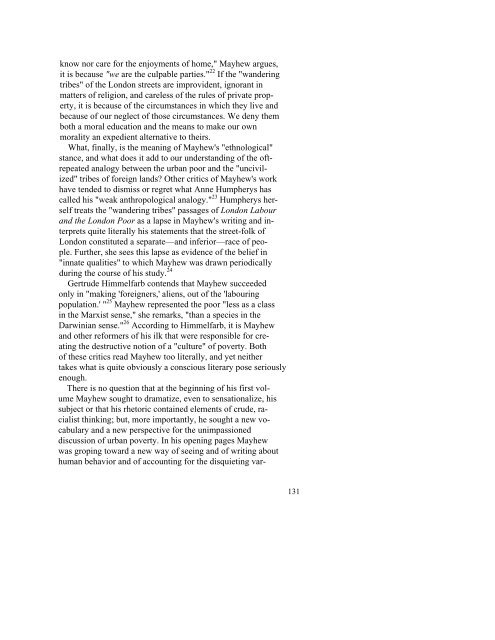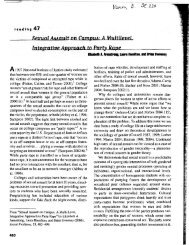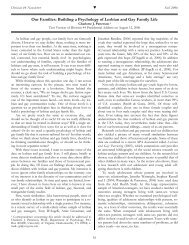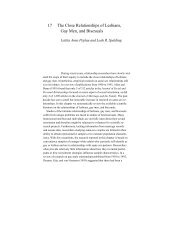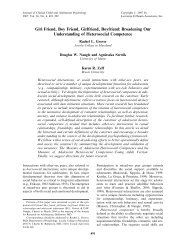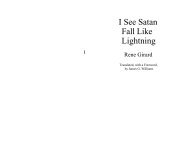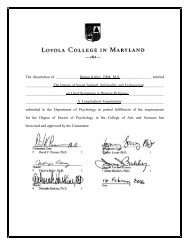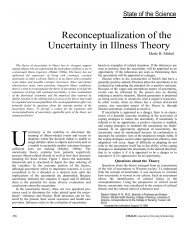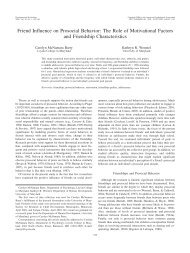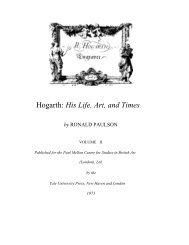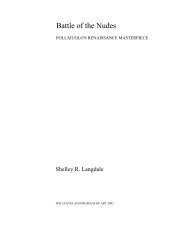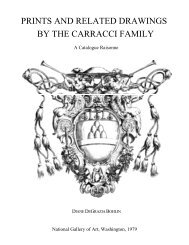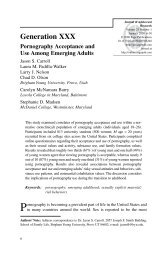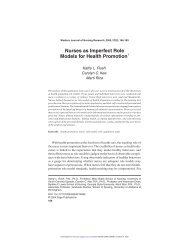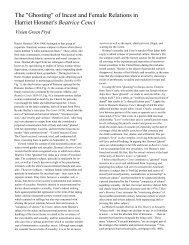The Social Explorer as Anthropologist: Victorian Travellers among ...
The Social Explorer as Anthropologist: Victorian Travellers among ...
The Social Explorer as Anthropologist: Victorian Travellers among ...
Create successful ePaper yourself
Turn your PDF publications into a flip-book with our unique Google optimized e-Paper software.
know nor care for the enjoyments of home," Mayhew argues,<br />
it is because "we are the culpable parties." 22 If the "wandering<br />
tribes" of the London streets are improvident, ignorant in<br />
matters of religion, and careless of the rules of private prop-<br />
erty, it is because of the circumstances in which they live and<br />
because of our neglect of those circumstances. We deny them<br />
both a moral education and the means to make our own<br />
morality an expedient alternative to theirs.<br />
What, finally, is the meaning of Mayhew's "ethnological"<br />
stance, and what does it add to our understanding of the oft-<br />
repeated analogy between the urban poor and the "uncivil-<br />
ized" tribes of foreign lands? Other critics of Mayhew's work<br />
have tended to dismiss or regret what Anne Humpherys h<strong>as</strong><br />
called his "weak anthropological analogy." 23 Humpherys her-<br />
self treats the "wandering tribes" p<strong>as</strong>sages of London Labour<br />
and the London Poor <strong>as</strong> a lapse in Mayhew's writing and in-<br />
terprets quite literally his statements that the street-folk of<br />
London constituted a separate—and inferior—race of peo-<br />
ple. Further, she sees this lapse <strong>as</strong> evidence of the belief in<br />
"innate qualities" to which Mayhew w<strong>as</strong> drawn periodically<br />
during the course of his study. 24<br />
Gertrude Himmelfarb contends that Mayhew succeeded<br />
only in "making 'foreigners,' aliens, out of the 'labouring<br />
population.' " 25 Mayhew represented the poor "less <strong>as</strong> a cl<strong>as</strong>s<br />
in the Marxist sense," she remarks, "than a species in the<br />
Darwinian sense." 26 According to Himmelfarb, it is Mayhew<br />
and other reformers of his ilk that were responsible for cre-<br />
ating the destructive notion of a "culture" of poverty. Both<br />
of these critics read Mayhew too literally, and yet neither<br />
takes what is quite obviously a conscious literary pose seriously<br />
enough.<br />
<strong>The</strong>re is no question that at the beginning of his first vol-<br />
ume Mayhew sought to dramatize, even to sensationalize, his<br />
subject or that his rhetoric contained elements of crude, ra-<br />
cialist thinking; but, more importantly, he sought a new vo-<br />
cabulary and a new perspective for the unimp<strong>as</strong>sioned<br />
discussion of urban poverty. In his opening pages Mayhew<br />
w<strong>as</strong> groping toward a new way of seeing and of writing about<br />
human behavior and of accounting for the disquieting var-<br />
131


